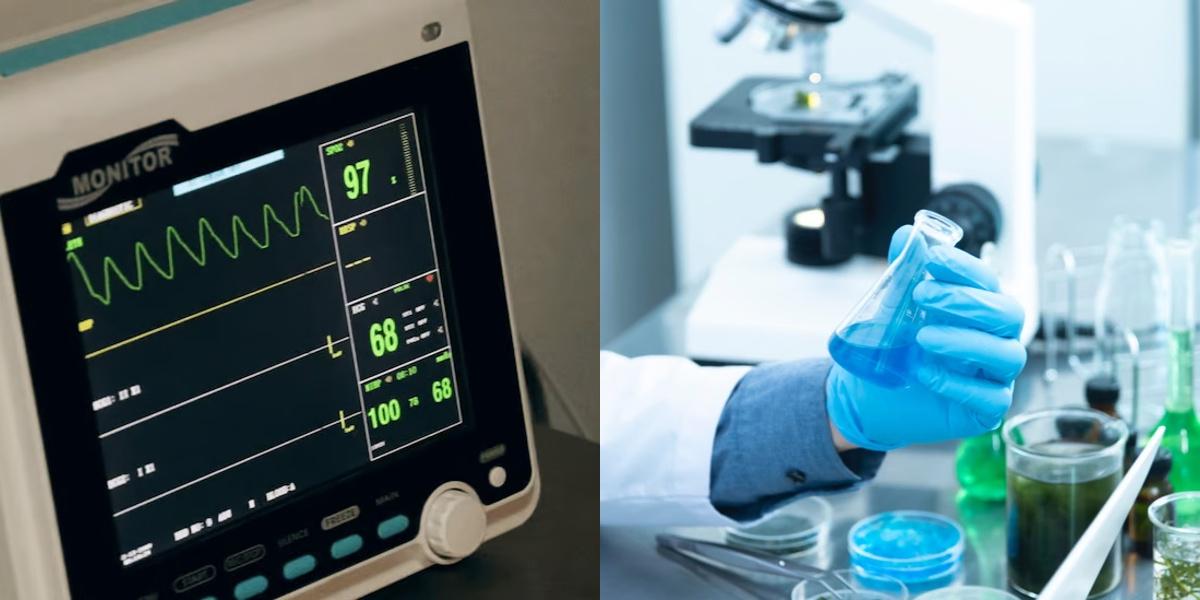EKG vs Sterile Processing Technician

Key Points:
- EKG Technicians focus on recording heart activity, while Sterile Processing Technicians ensure medical equipment is clean and sterilized.
- EKG Technicians typically earn slightly higher wages than Sterile Processing Technicians.
- Both jobs are in demand.
- EKG Technician training is often available online, while Sterile Processing Technician training is usually in-person.
- EKG Technician training is generally less expensive and shorter than Sterile Processing Technician training.
The healthcare industry is constantly growing, and with that growth comes an increasing demand for skilled professionals in various roles. EKG technicians and sterile processing technicians are crucial members of the healthcare team, each playing a unique role in patient care.
EKG vs Sterile Processing Technician: Education and Training
-
EKG Technician Education and Training: To become an EKG technician, you typically need a high school diploma or equivalent. Some employers may require additional certification, such as the Certified EKG Technician (CET) credential, which demonstrates your proficiency in performing electrocardiogram tests. CET programs are available through vocational schools, community colleges, and online platforms. These programs typically cover topics such as anatomy and physiology, medical terminology, EKG interpretation, and patient care skills.
-
Sterile Processing Technician Education and Training: To become a sterile processing technician, you typically need a high school diploma or equivalent. Many employers require additional certification, such as the Certified Registered Central Service Technician (CRCST) credential, which demonstrates your knowledge and skills in sterile processing. CRCST programs are available through vocational schools, community colleges, and professional organizations. These programs cover topics such as infection control, sterilization techniques, instrument handling, and healthcare regulations.
EKG vs Sterile Processing Technician: Career Outlook and Salary
-
EKG Technician Career Outlook and Salary: According to the Bureau of Labor Statistics (BLS), the employment of cardiovascular technologists and technicians, including EKG technicians, is projected to grow 5 percent from 2019 to 2029, which is faster than the average for all occupations. The increasing prevalence of cardiovascular conditions and the aging population contribute to the demand for EKG technicians. As of May 2020, the median annual wage for cardiovascular technologists and technicians was $59,410.
-
Sterile Processing Technician Career Outlook and Salary: The BLS does not provide specific data for sterile processing technicians. However, the demand for healthcare support occupations, including sterile processing technicians, is projected to grow 11 percent from 2019 to 2029, much faster than the average for all occupations. The increasing number of surgeries and medical procedures drives the demand for sterile processing technicians. According to the Association for the Advancement of Medical Instrumentation (AAMI), the median annual salary for sterile processing technicians is around $43,000.
Final Thoughts
Choosing a career in the healthcare field is an important decision, and both EKG technicians and sterile processing technicians offer unique opportunities to contribute to patient care. Consider your interests, skills, and preferences when deciding which path to pursue. Whether you prefer direct patient interaction or behind-the-scenes work, both careers play a crucial role in ensuring the well-being and safety of patients. Research the education and training requirements, as well as the career outlook and salary potential, to make an informed decision about your future in healthcare.
Dreambound's educational programs open doors to exciting opportunities. For a more comprehensive understanding of the potential within these two vocations, we invite you to explore further details by visiting:

Vduani Martinez is a part of the Growth team at Dreambound. She creates and fixes workflows and automation to guarantee seamless operations. On top of that, she manages databases to ensure all information is up to date. Vduani is a licensed Electronics Engineer who loves coffee and is a travel enthusiast. Out of the office, she enjoys going on road trips and discovering new cafes and restaurants.




